Nothing Can Stop These Trans Footballers from Playing
January 2, 2024This article originally appeared on VICE Netherlands.
Football is first and foremost a team sport. It’s about trusting each other on the pitch, sharing intimate moments in the locker room, celebrating victories, mourning losses, and having a beer together after the match. Football has the power to bring together villages, cities, even whole countries. But it can also be a toxic environment where people of diverse genders and sexuality are not often welcome.
The Football Association (FA), which oversees all aspects of the amateur and professional game in England, allows mixed-gender football teams until the age of 18. Denmark has no limit, the Netherlands and Switzerland have an upper limit of 19, and Germany and Italy of 17. As a result, mixed-gender teams remain extremely uncommon in the modern game.
Generally, non-binary and trans players who take hormones have to request authorisation to play in tournaments from their local association. Where I’m based, in the Netherlands, the KNVB (the Royal Dutch Football Association) takes care of this. The conditions required to get this approval are pretty vague, and you’re not allowed to participate if your request is rejected.
Dylan, Jaimy and Jays are trans and non-binary players who have all played in women’s teams and have chosen to continue doing so after their transition. We spoke to them about their love for their teams and the challenges they encountered along the way.
‘I just want to be able to enjoy playing’
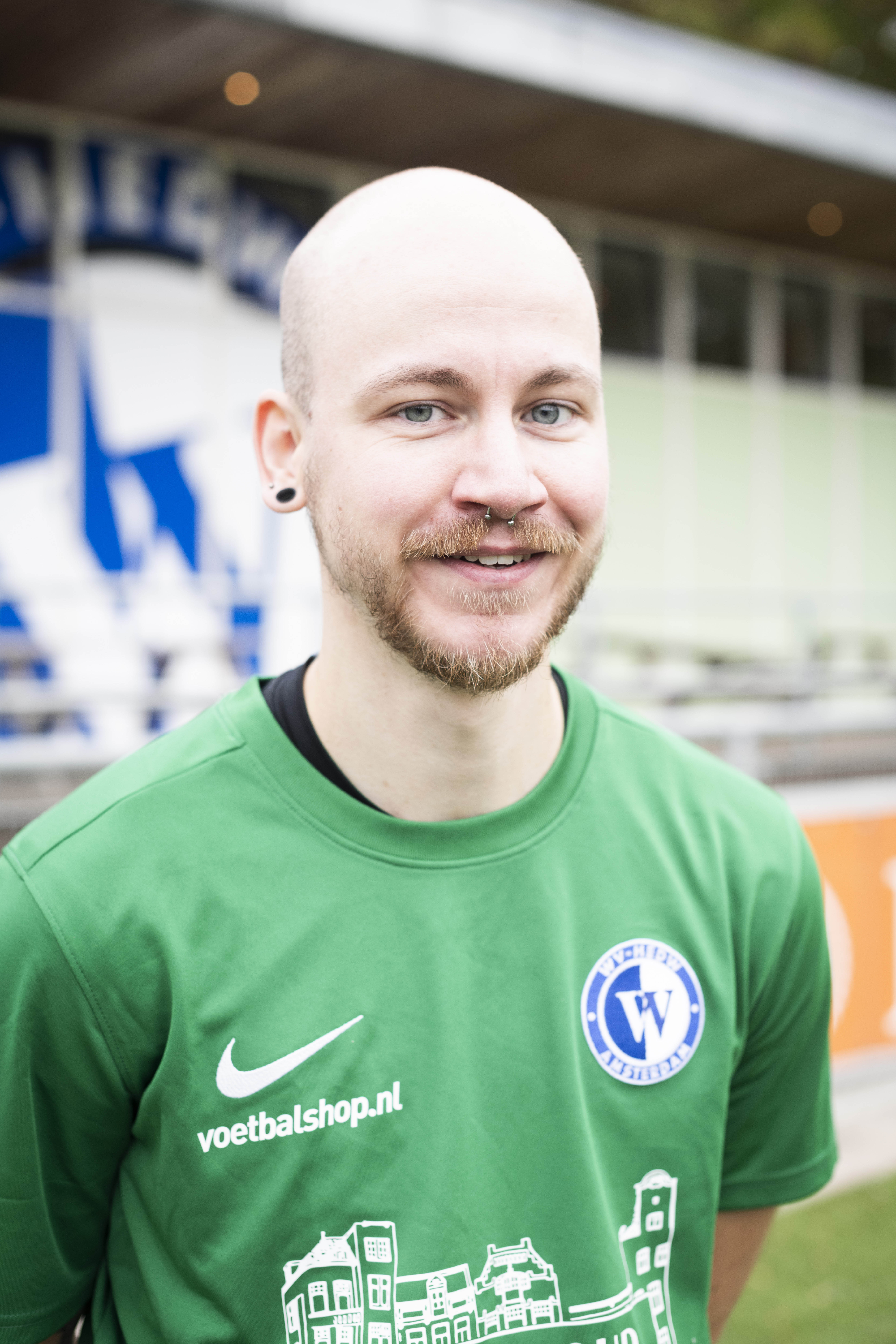
“When I was eight, I started playing football for the only women's team in my town. It was a lot of fun for many years, but then I transitioned. It's not like I suddenly became faster or stronger – I hadn't even started hormone therapy yet – but it still felt unfair to keep playing. I decided to leave, even though my teammates were sad about it. I later realised my feelings were motivated by the fact the presence of trans people in sport is often described as unfair.
“Ten years later, I found myself playing football in a men's team, which felt like a logical step to me. But people made a lot of misogynistic comments in the locker room. It wasn’t a safe space to tell people I was transitioning, although I wanted to.
“I didn't want to have the feeling that I was keeping a secret, so I decided to tell the coach. He said he felt cornered by this information, as if I was getting him into trouble. That definitely wasn't the response I was hoping for.
”I don't really like men's football, there’s a lot of aggression on the field, like people kicking each other's ankles. And I didn't feel physically strong enough to play with them – I was knocked over easily. After this experience, I didn't play for a long time.
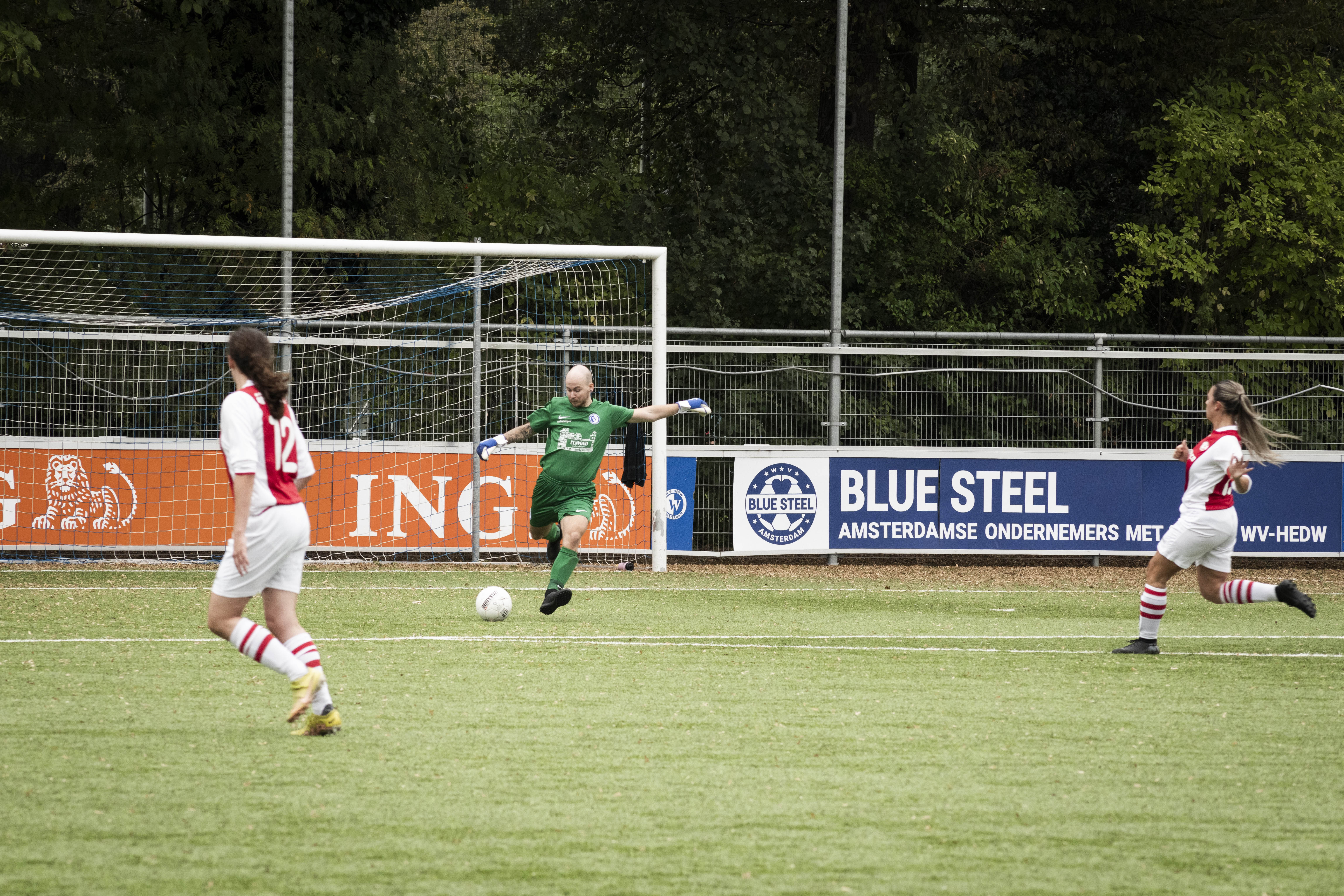
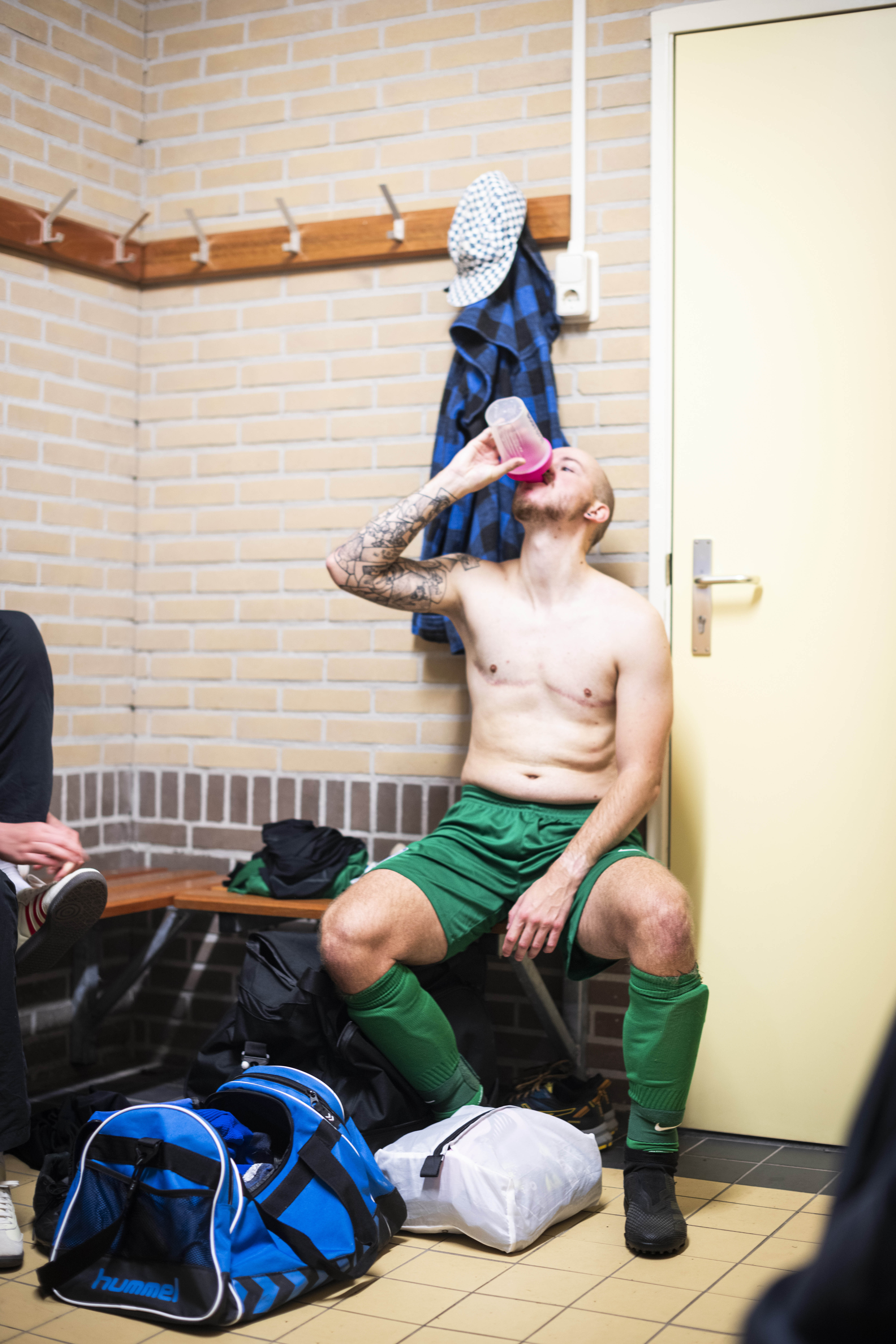
“I have identified as non-binary for several years now. That search took me a very long time. Last year, a friend shared an Instagram story saying her women's team in Amsterdam was looking for players. It was a bit far, but I still wanted to check it out. I was immediately invited to hang out after the game. Everyone started chatting and showed interest in me. It was so much fun that I thought: ‘Let’s just do this!’
“My coach, Gianni, submitted an application to the KNVB so I could officially play as a non-binary person. We wanted to do things by the book. Our application was rejected because my physical differences could supposedly affect the safety and performance of other female players. Even though I’m non-binary, my passport has an ‘M’ on it.
”Gianni forwarded the rejection in the group chat. My teammates decided we would just keep playing and see what happens. It really meant a lot to me. I don't always feel safe with people, but with this team, I really do. I would do anything for them.
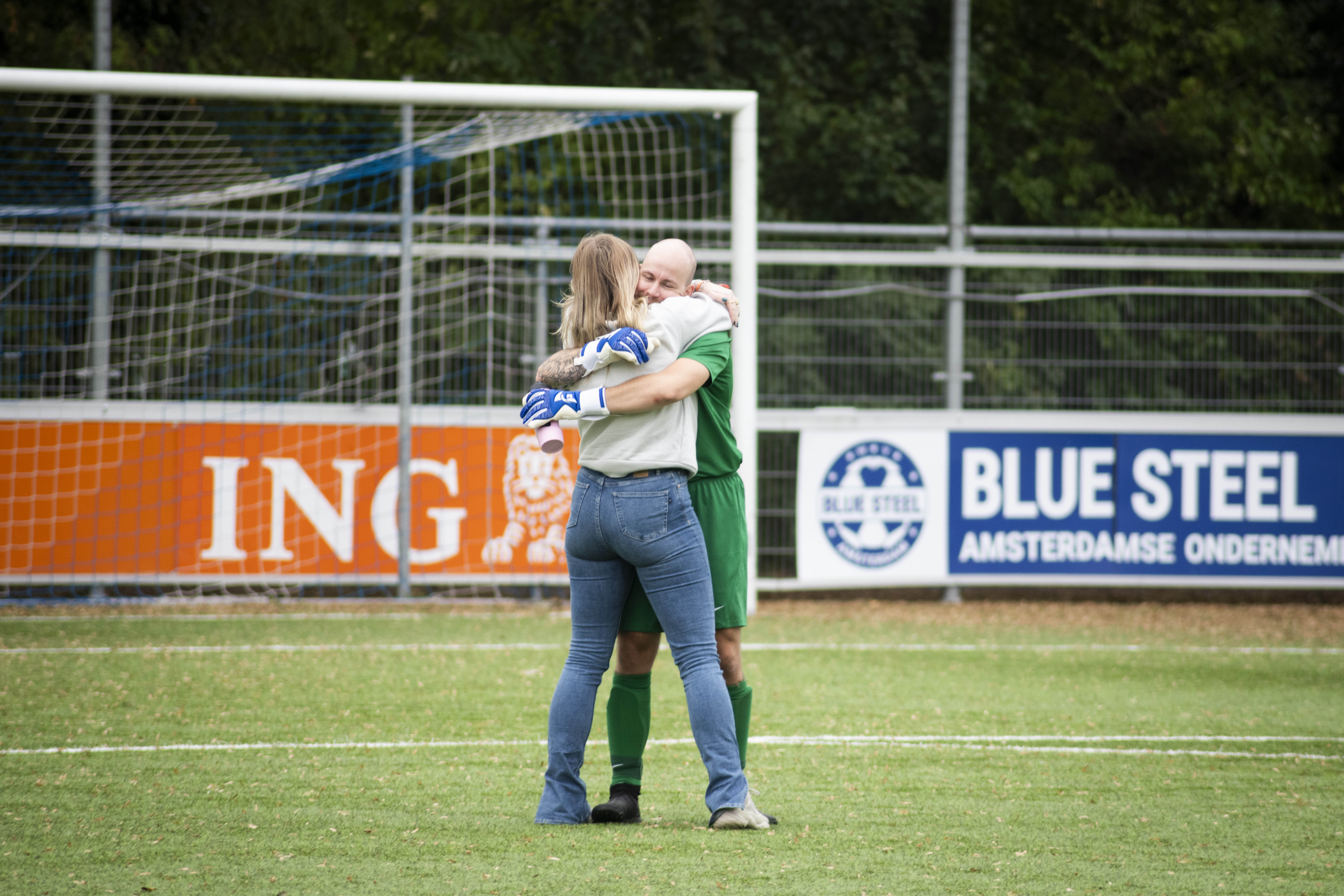
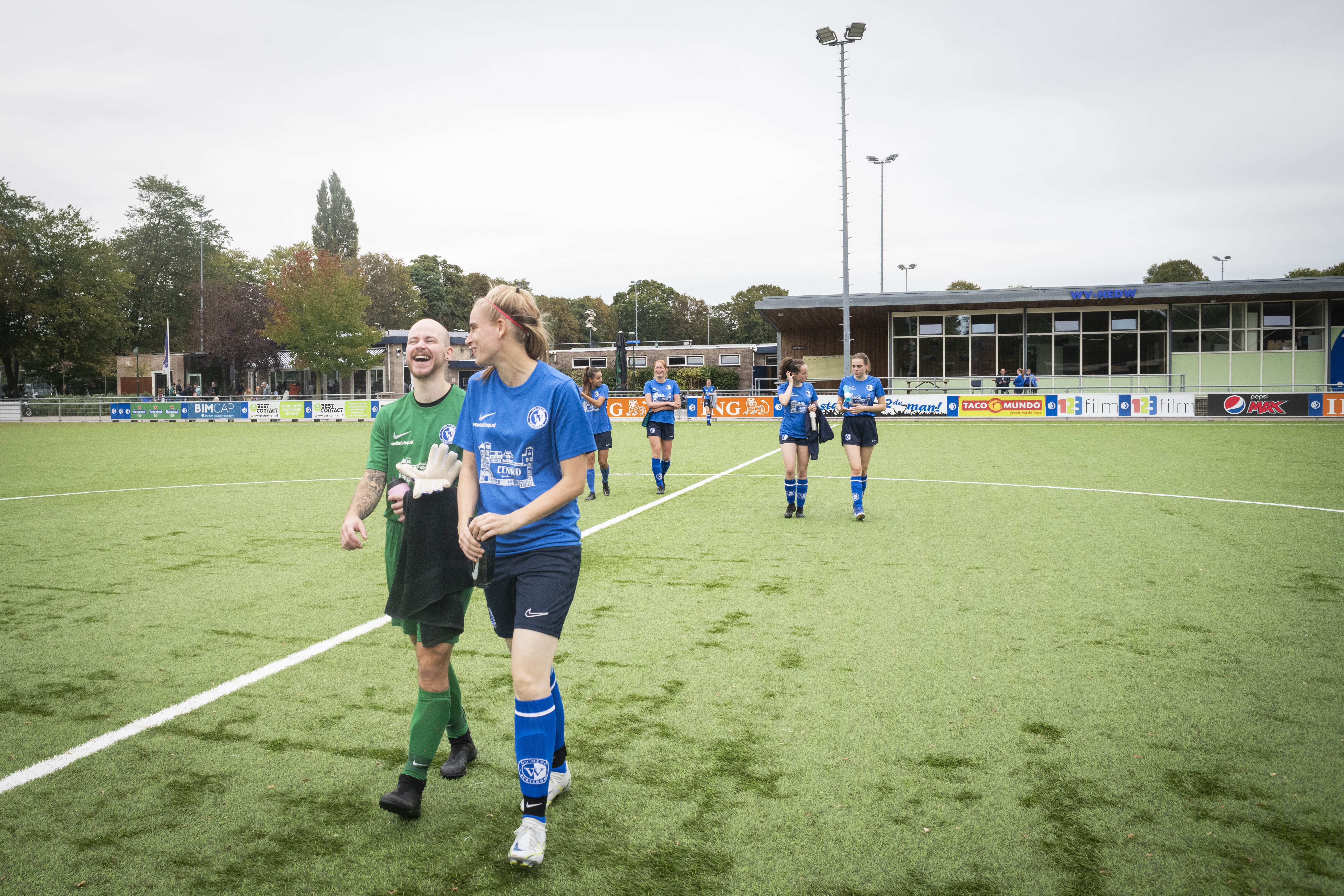
“Opponents have never made a big deal out of it. They do sometimes ask questions, and rightly so – I would, too. We always answer, and sometimes, Gianni walks up to them to tell them my story. I get where they come from, but everyone's body is different: Some women are bigger, buffer and taller than me, or more aggressive.
”I just want to be able to enjoy playing football. Fortunately, I feel very welcome on my team, I don't have to worry. That's also exactly why I play football, to get away from it all.” – Jays, 27
‘Playing football is also about the sense of community’
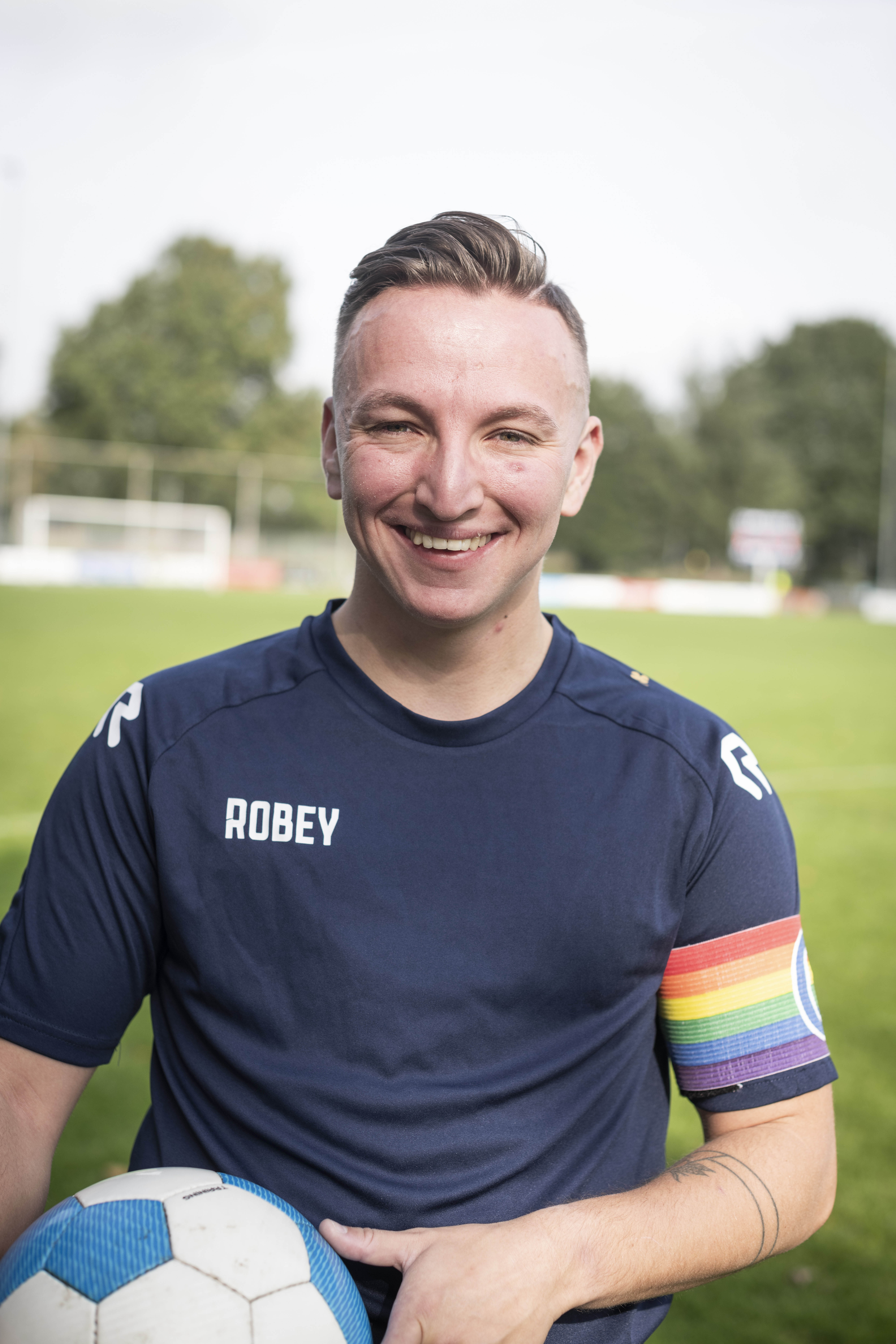
“I remember not being nervous about telling people about my transition, except for football. I wanted to keep playing, and I would have had to stop if the team didn't feel comfortable with it, or the association disapproved.
”One day, we were in the room where we always discuss the match before entering the pitch. I told everyone I had been struggling with how I felt for some time. And the moment I said that I had decided to transition, I saw a lot of emotion on the faces of my teammates, tears in their eyes, but also big smiles.
“When we walked onto the pitch, someone immediately put their arm around me. That felt magical. We realised how close we were as a team. Plus, we played a good match!
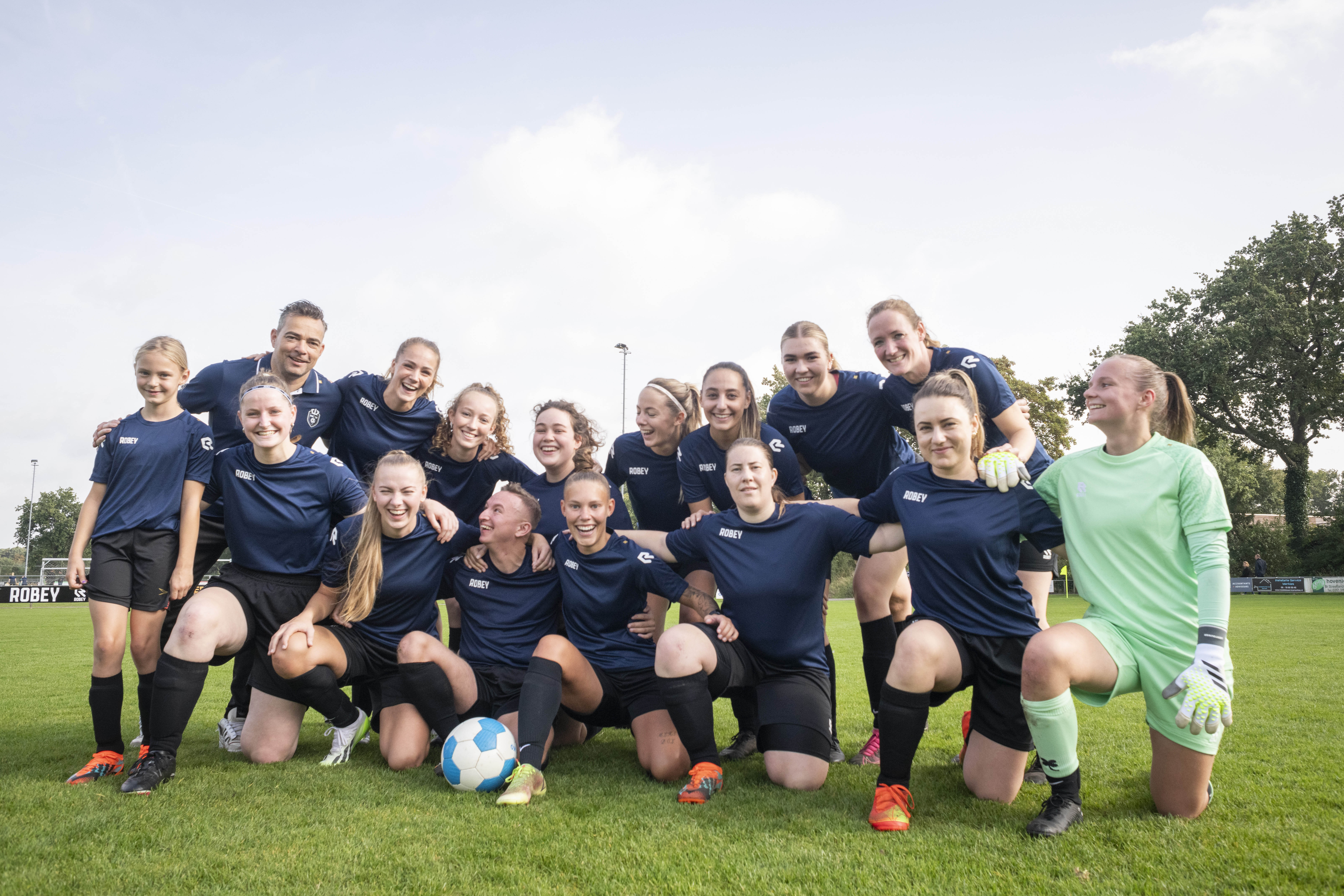
“The following weeks, I really had to get used to my new name and gender, and I must say my team dealt with it very well. There were some older players who struggled to get used to it, but we would just joke about it or correct each other. We are all in this together.
“That’s also my team's attitude towards the opposing team: If they make a comment or have questions, they literally stand behind me to tell them I’m just as much a part of the team as any other player. Sometimes they want to get into it with full force, but I’m a little more laid back about it. I also get that it is unusual. My KNVB request was approved, and the club has an official letter explaining everything in detail. That makes things a lot easier.
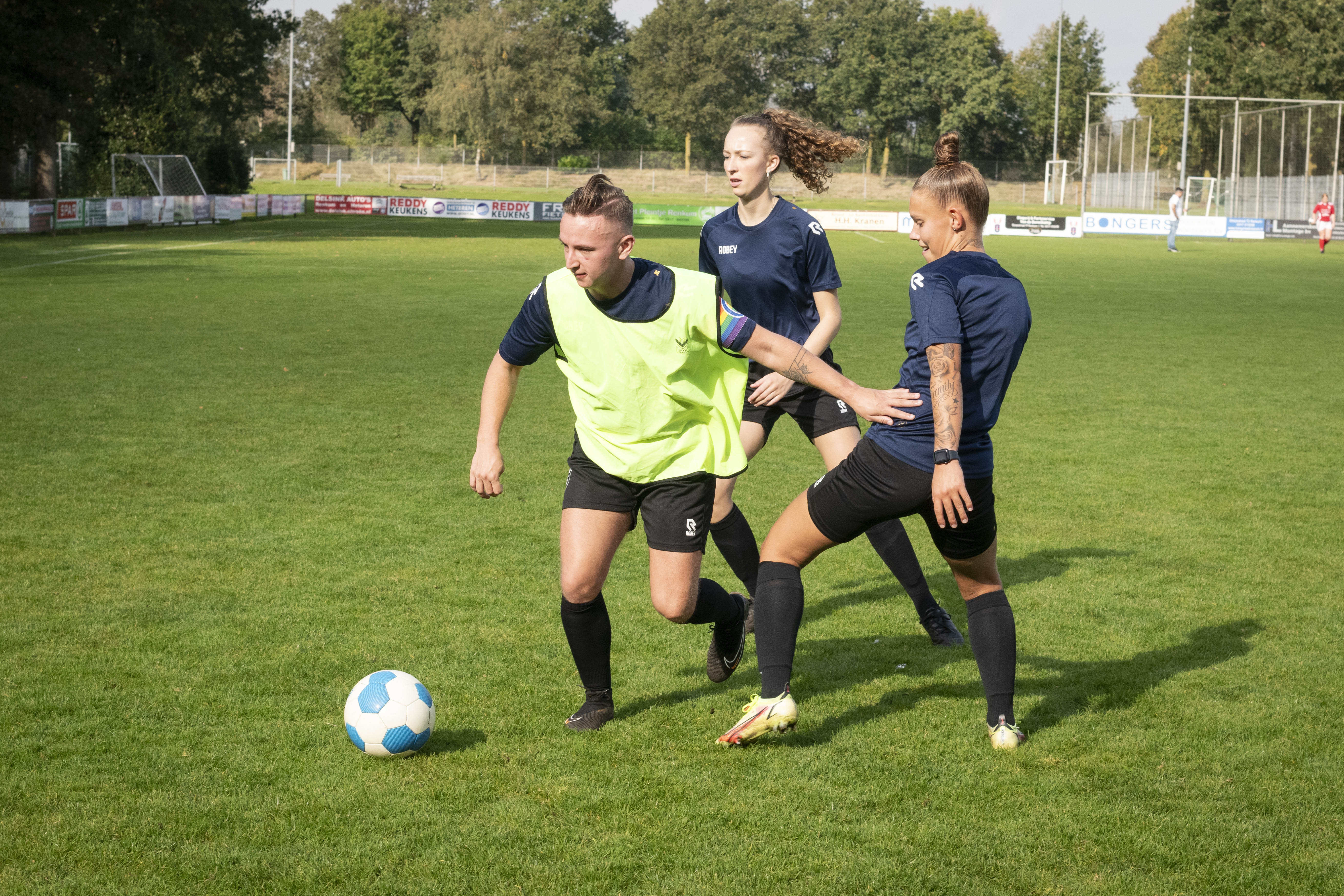
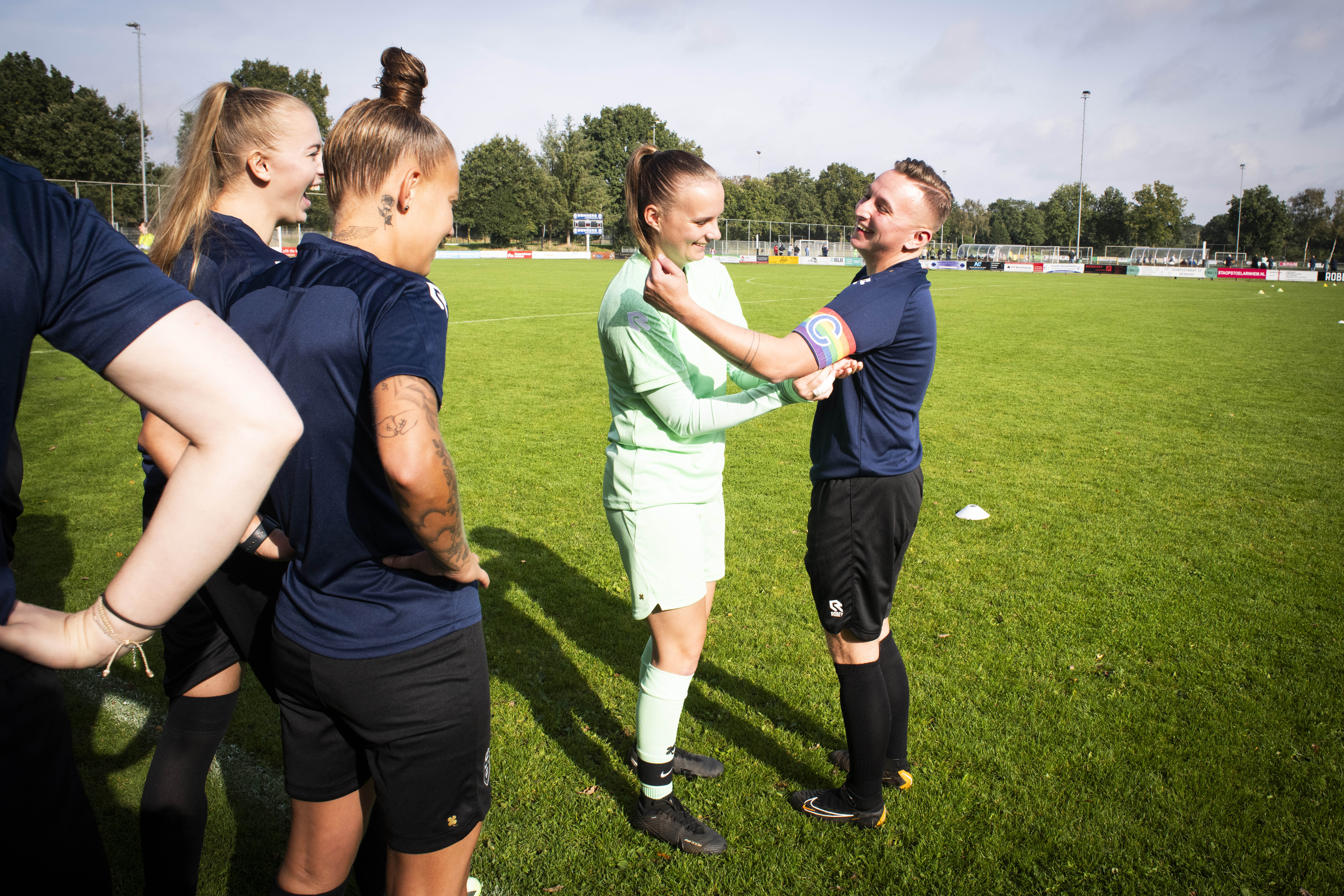
“I really wanted to play with men, because I feel 100 percent like a man. So I gave it a shot, but I quickly realised it was impossible. The physical difference is just too big. I’m stronger and I can handle more than I used to, but I still can’t compete with someone who was born as a man.
“I also tried to join a senior team, but my father played on that team. It's just much more fun to play football with your peers and friends! Playing football is also about the social aspect, the sense of community.
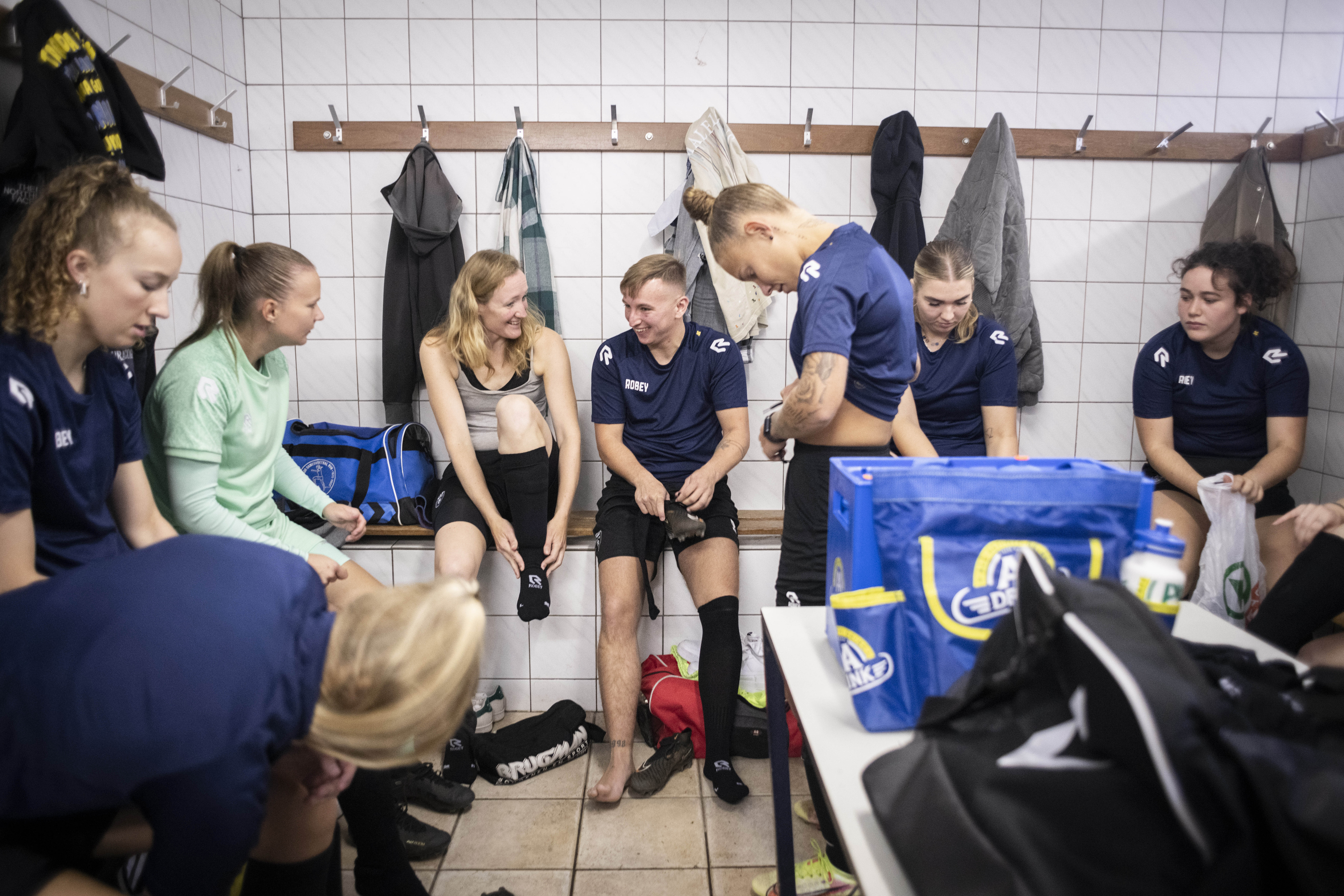
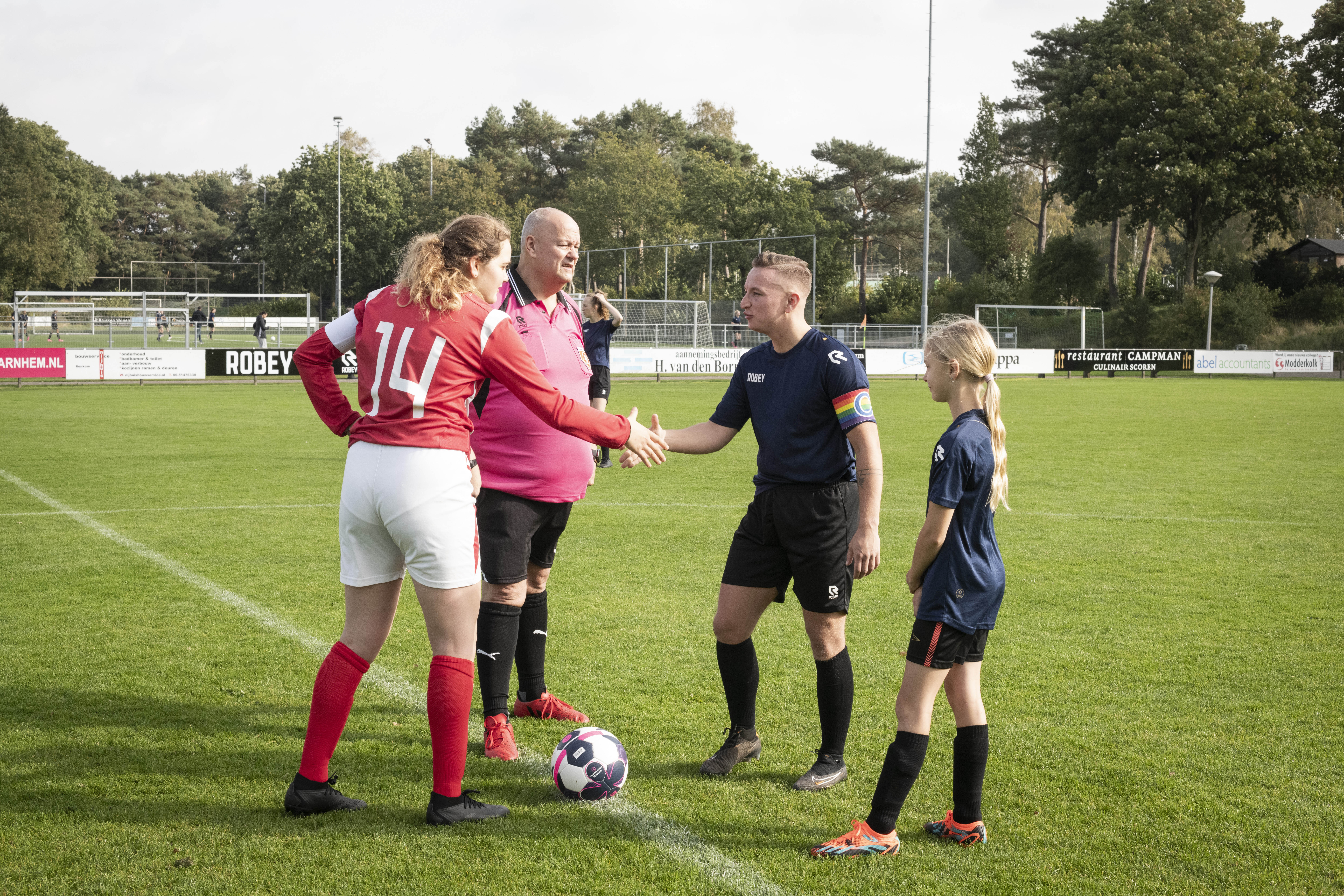
“I think a lot about the moment when the differences [between me and my teammates] might become too much. As a team, we have to keep talking about this. Every season, we can chat about whether it still feels OK to play together. The most important thing is that it remains fun for everyone.
“Recently, we played against a team that seemed quite diverse and open-minded, but when we were 2-1 up, they started to get frustrated. ‘A boy is playing, that's not fair,’ someone shouted.
“In moments like these, I try to calmly explain why I have chosen to play football at this particular club. It usually brings us closer. We shook hands afterwards and one of the players said we were the nicest team that they had faced in a long time.” – Dylan, 26
‘I would constantly feel pressured to prove that I have the physical strength and speed of a [cis] man’
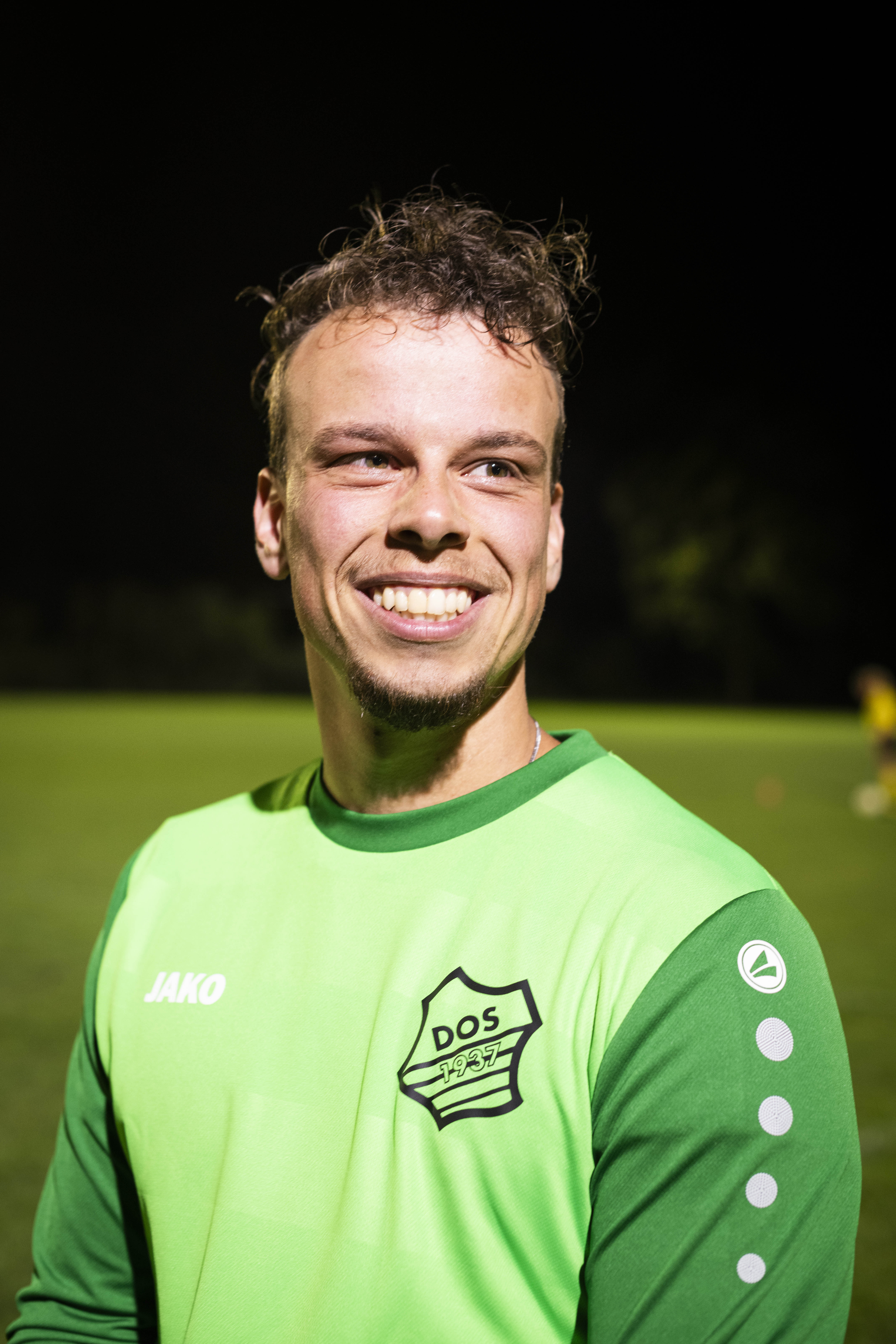
“At the age of seven, I started playing football in a girls' team. And 12 years later, I began my transition. I was very worried about my body. I explained to the team that I was wearing a special binder so that my feminine figure would be less visible.
“In the locker room, I sometimes struggled to put it on, so I asked a teammate to help me. She helped me once, but then never again. Putting on the binder in that locker room felt like torture, and after that rejection, I felt less and less comfortable within the team. Eventually, I decided to leave.
“A few years later, during my transition, I started playing football for another women's team. When I met them for the first time, I immediately said: ‘I'm in transition and I've had breast surgery, and I'm also planning to take hormones. Let me know if you have any issues with it, because in that case, I won't play here.’ But everyone reacted very well. In the locker room, my teammates even said that I had beautiful scars. I thought to myself: ‘Yes, I am actually very proud of them.’
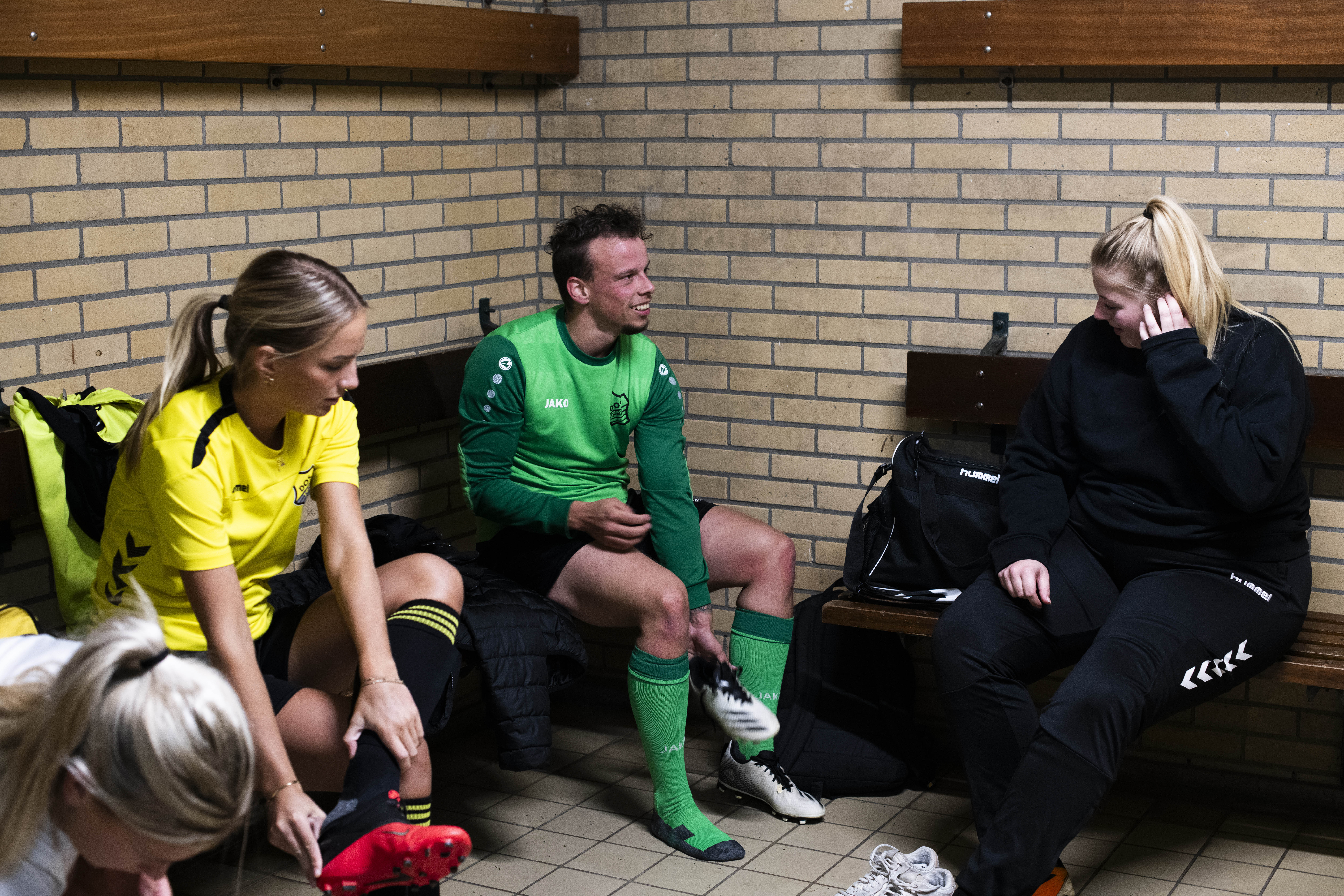
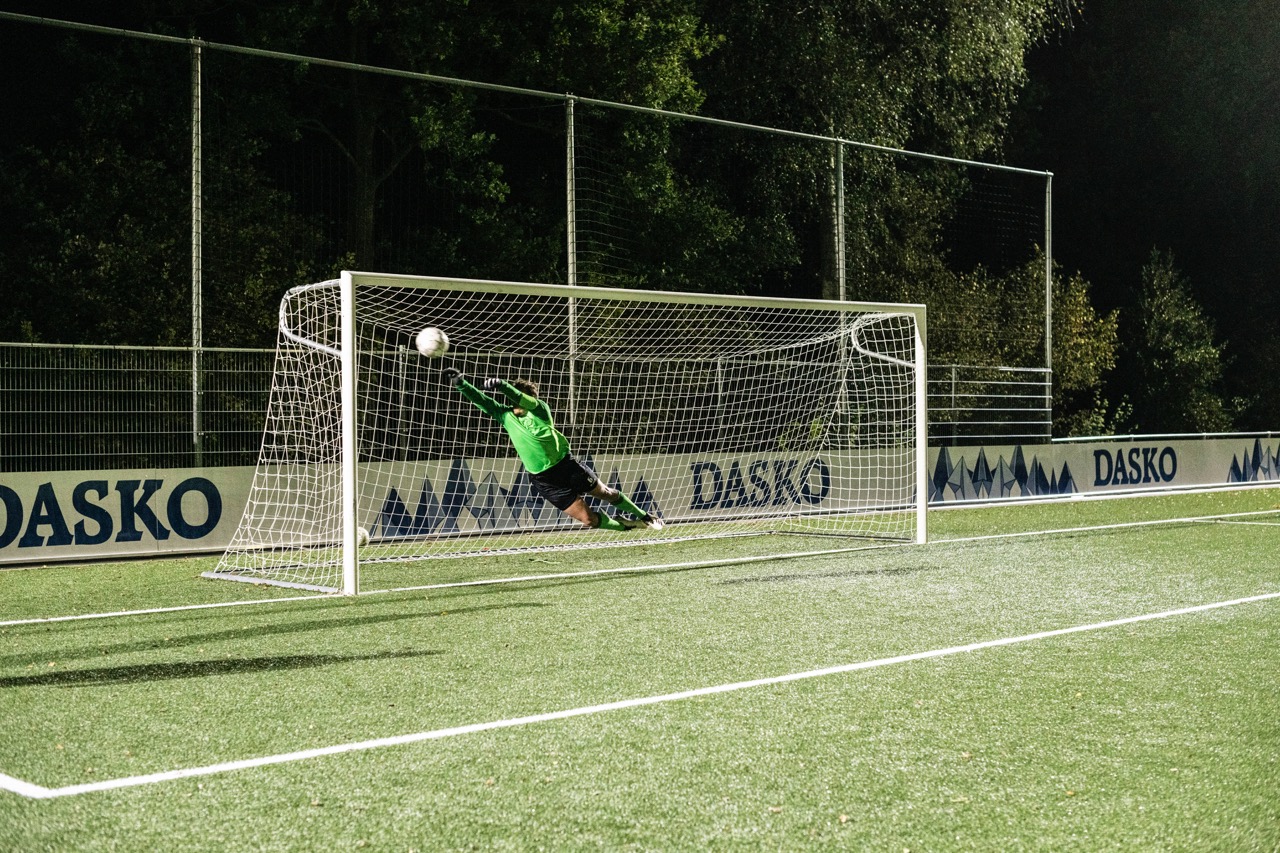
“My experience with the KNVB was difficult, to say the least. I emailed them several times, but the person I was in contact with didn't really know how to handle the situation. I still haven’t heard back from them.
“I grew up playing football. I do it because I enjoy it, and I feel most comfortable with women. I already knew many of the players I play with now, so it’s comfortable. The coach also immediately told me that I was more than welcome to join.
“I haven't tried playing on a men's team. The macho culture doesn't suit me. Besides, if I played football with and against men, I would constantly feel pressure to prove that I really am a man. That I have the physical strength and speed of a man. That I always have to go the extra mile, even though it wouldn’t be physically possible at a certain point.
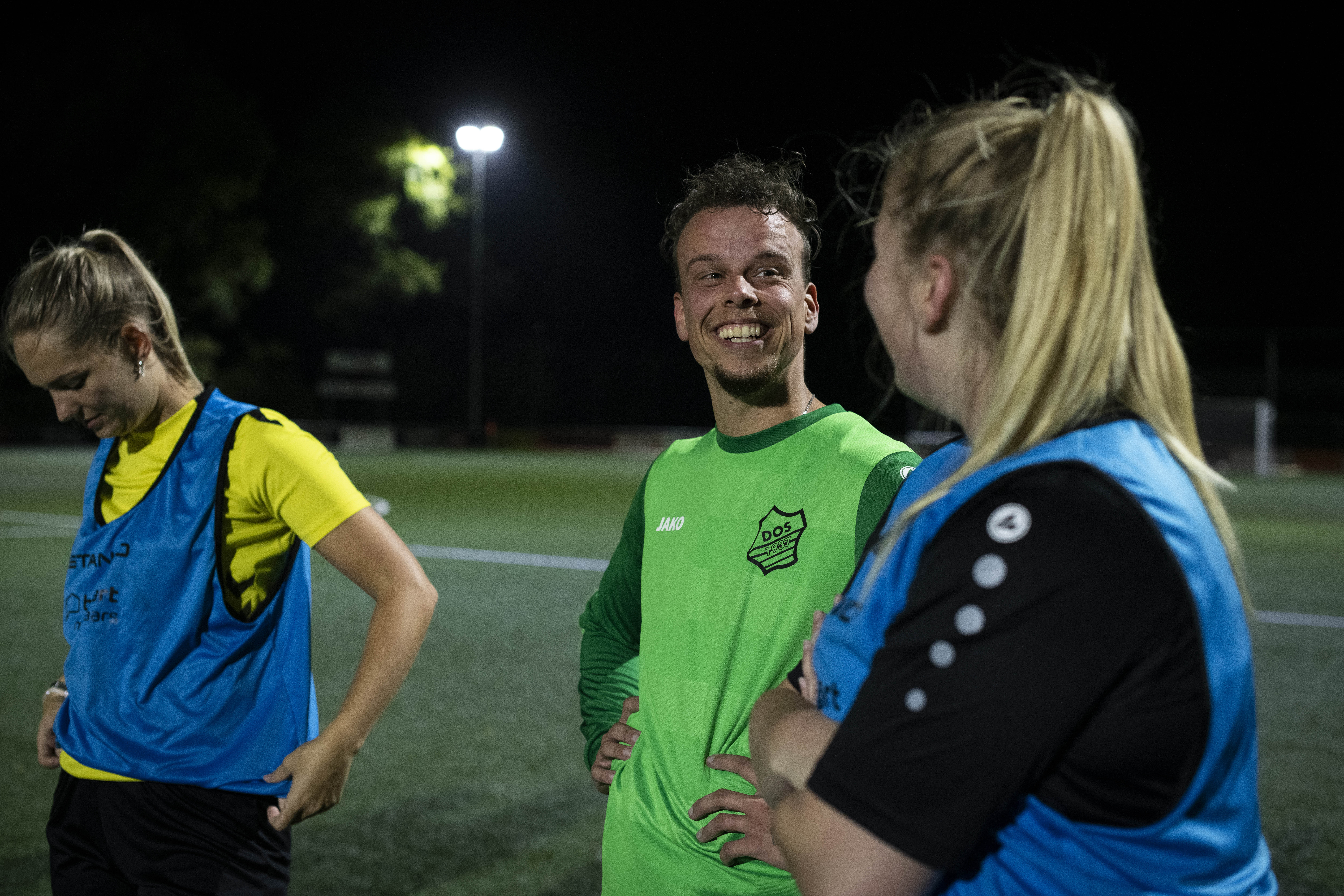
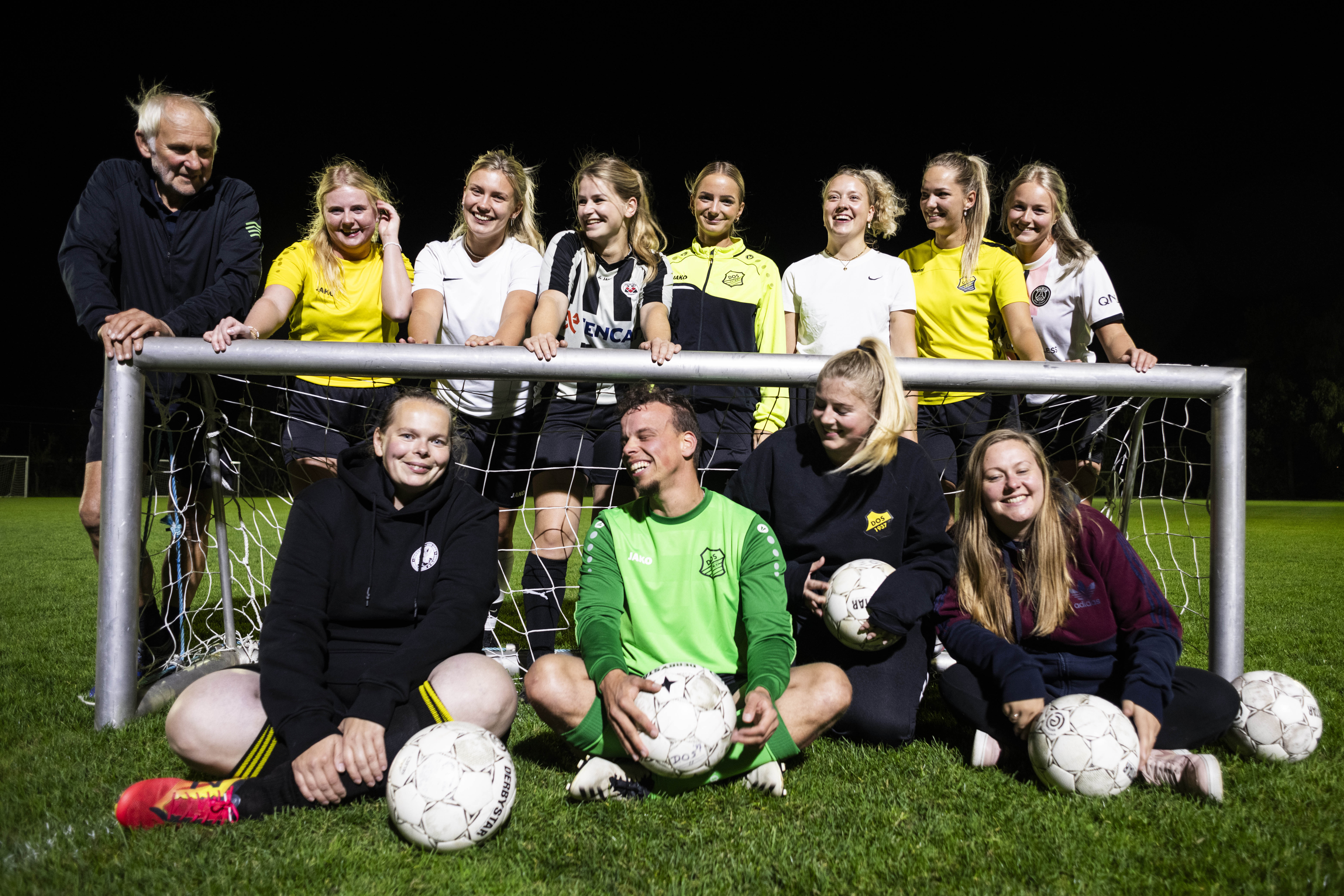
“With my opponents, I take it easy. I'm stronger and more buff, so I take that into account, even though I'm super competitive. And it's not like I'm on a super high level – I’m completely out of breath after a sprint. But I feel like if you can hit hard, you should also be able to take what comes back at you.
”Before every match, my teammates and I take the time to tell my story to the opposing team, and say that all we want is to play a nice game. Eventually, they usually understand. My team recently made it clear that if the other team makes a big deal out this, we won’t play against them.
“I have felt lonely in some teams in my football career. I spent a lot of time on my phone and quickly fled the cafeteria after the match. But on this team, whenever I get up from my seat, they always ask me straight away: ‘Are you leaving already?’” – Jaimy, 26
VICE has repeatedly asked the KNVB to comment on their policy regarding transgender and non-binary players as well as the specific cases mentioned in this piece, but there has been no response to this to date.
